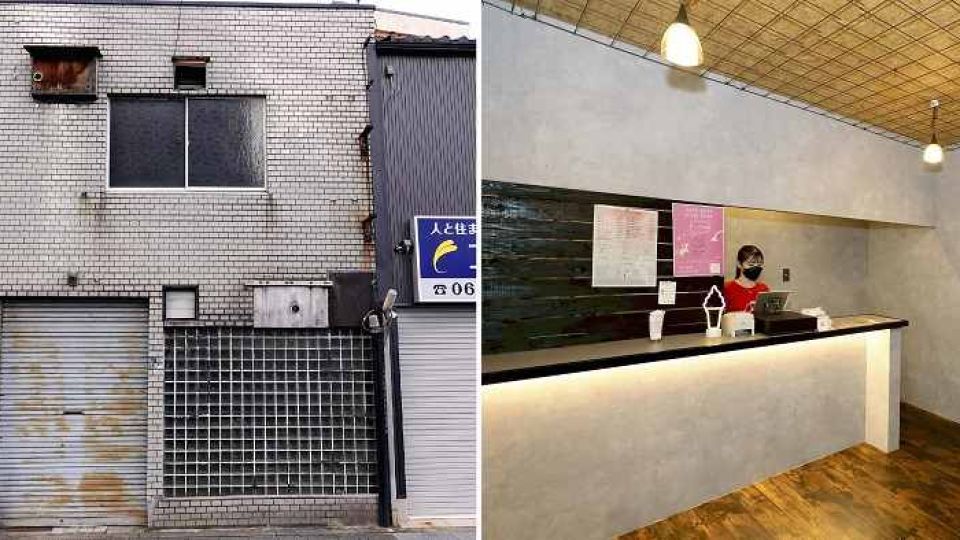September 5, 2022
TOKYO – In recent years, an increasing number of vacant houses have been sitting unoccupied — even in good locations in urban areas. Now, however, owners are taking advantage of leasing services that renovate such homes and sublease them as residences or shops.
The businesses turn a profit by rehabilitating properties and transforming them into income-producing assets on behalf of the owners, who often lack the relevant expertise to utilize their properties effectively.
The central and local governments are currently strengthening measures on vacant houses due to possible problems following a natural disaster, and hope the growth of such services will help reduce the number of empty homes.
Empty for 7 years
A popular ice cream store in Nishinari Ward, Osaka, set up shop in an empty property. Although the building was in a convenient location near Tengachaya Station on the Nankai Electric Railway line, it had sat unoccupied for seven years.
The shop opens late, at 8 p.m., but the neon-lit building, which is over 50 years old, is known for its Instagram-friendly appearance. Originally, the building leaked and had an uneven floor, but it was given a new lease on life last autumn by a vacant house utilization service operated by Tokyo-based real estate company Ject One.
The service, dubbed “Akisapo” is structured so Ject One or a partner company can lease, renovate and sublease vacant properties. The service, which began in 2016, has already been used to revamp about 50 properties nationwide. Old houses and other properties in Tondabayashi and Kishiwada in Osaka Prefecture are among Ject One’s ongoing projects.
Owners bear no financial burden. On the contrary, Ject One pays a portion of the rent upon a house lease. The company uses rental income to cover renovation costs and takes a slice of the rent as profit. After all the company’s renovation costs are recovered, the owner is free to rent the property out and receive 100% of the income.
The ice cream store was opened by an Osaka City-based yakiniku barbecue restaurant operator. Rent was set at an affordable ¥70,000 per month, motivating the restaurant to try running a different type of business, according to the store.
The building’s owner, an Osaka City resident in her 60s, said the building was previously used by her father as an office. “My father passed away and I had no choice but to leave it empty,” the woman said. “I’m glad to see it put to good use.
Transportation firm involvement
Osaka Metro Co. became involved in the housing market in December 2019. The company rents vacant buildings around three subway stations on the Midosuji Line — Nishitanabe, Nagai and Abiko — and subleases them following renovation work. The company has completed work on five such houses so far, with plans to increase this number to around 100.
“We want to create a lively atmosphere along our subway line and increase user numbers,” an Osaka Metro official said.
In the past, getting information on vacant houses was difficult, leading to a belief that such premises would be unlikely to make a profit. Nevertheless, the central and local governments have begun to act over the empty home issue, fearing the buildings could collapse or catch fire if left unattended. This has encouraged the spread of private companies and other services.
Good location vital
According to government statistics, as of 2018, there were 8.48 million vacant houses nationwide, with the figure more than doubling in the past 30 years. In 2015, the government enforced the law on special measures against vacant houses and has also opened “empty house banks,” which facilitate online searches for vacant house information. Currently, some 5,600 houses in about 640 municipalities are registered.
The Kobe city government has recently begun a project to subsidize up to ¥5 million for renovation work on empty homes in cases where architects are involved. Twenty houses will be revitalized as shared living quarters, artist activity centers and other facilities to improve the community’s appeal.
However, observers say it is difficult to profit from vacant houses unless they are well located. Currently, there are only limited examples of homes that have benefited from the renovation service.

